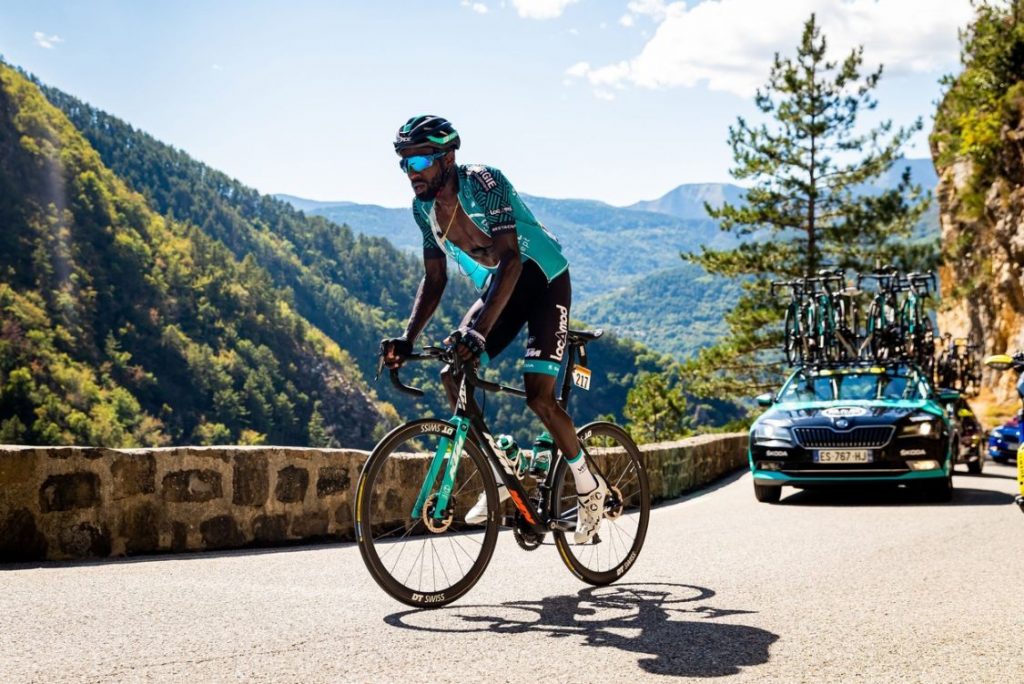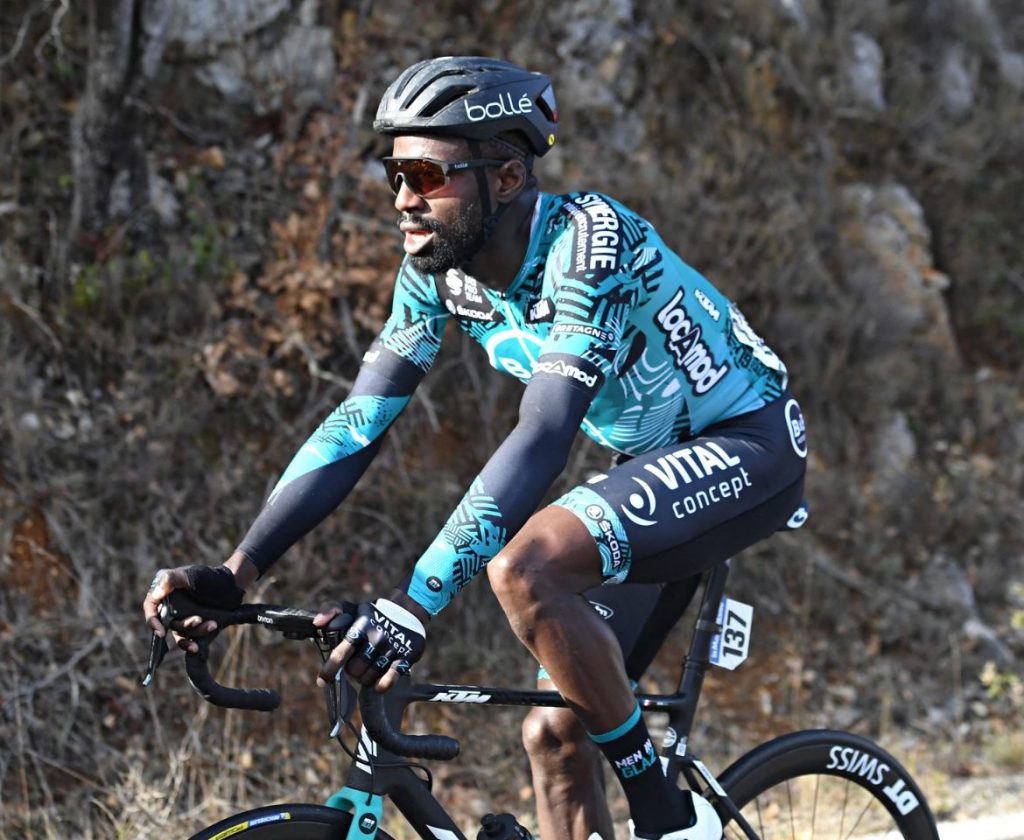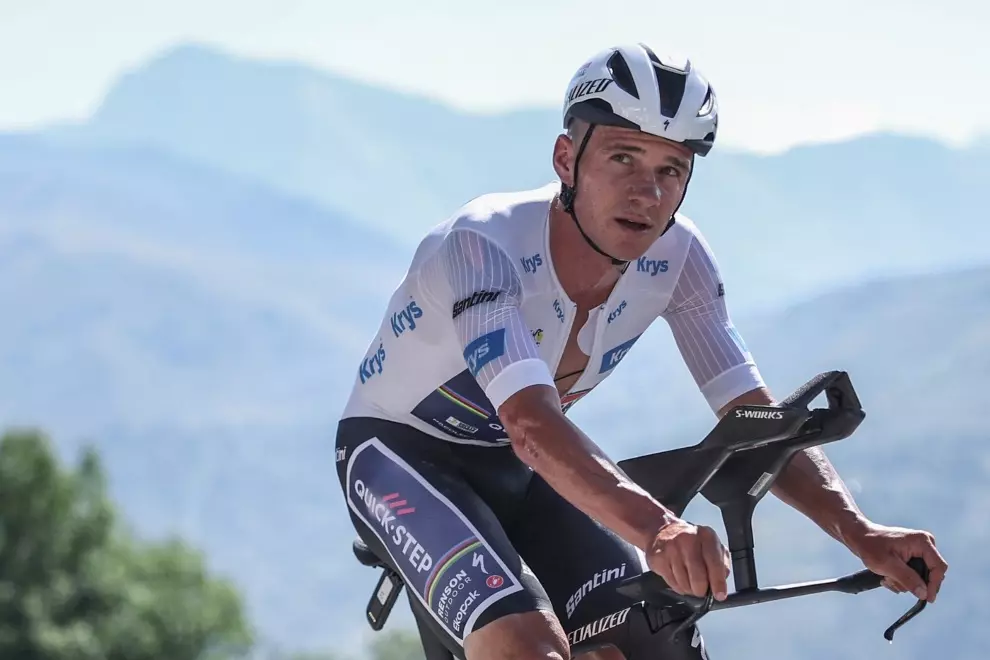The other problem, and one which may be more difficult to tackle, is that the few Black cyclists currently in the sport continue to suffer from open racism on the part of other cyclists who often escape with a slap on the wrist.
Just ask Kevin Reza of the French team B&B Hotels p/b KTM who races with the second-division UCI ProTeams and was invited to last year’s Tour de France. This made Reza the only Black rider at the Tour and one of only five Black riders in the entire WorldTour peloton. Those who watched the final stage of that Tour de France will know that, at the start of that stage, Reza rode at the head of the peloton in the company of all the jersey winners – including yellow jersey winner Tadej Pogačar. And all the riders left in the race wore face masks imprinted with the slogan #NoToRacism.

Reza told Sky Sports that this gesture was “a kind of a release and opening” for him. “It’s just something that makes me want to be able to share and interact with people, those who may or may not be racist, but at least we can have a proper exchange and I can share my ideas and thoughts,” he said. “And that’s something that I enjoy since it’s a subject that remains taboo and that we aren’t used to talking about openly. I’ve been able to do that since the 2020 Tour de France.”
In 2017, Reza was racially abused at the Tour de Romandie by Italian rider Gianni Moscon, then of Team Sky and now with Ineos Grenadiers, who was suspended for six weeks and sent on a diversity training course. Reza believes that the punishment was not harsh enough and that the UCI must punish racism more severely. “As a minimum, you would expect to see a racist get punished like a doper,” he said, which would involve lengthy bans. “It would show they’re taking a strong stance in terms of supporting action against the various forms of discrimination within the sport.”

Fortunately, Reza is not alone in attempting to change cycling’s diversity problem. Last year’s Giro d’Italia winner, Tao Geoghegan Hart of Britain, declared in February that he will sponsor a young minority rider in partnership with his former development team Hagens Berman Axeon. In a lengthy Instagram post, the Ineos Grenadiers rider said that it was a fact that “cycling has a problem with diversity and inclusivity.” He went on to declare that this problem was not unique to sports and it must be “faced head-on.”
“Cycling has not done enough [to resolve the issue] during this past year,” Geoghegan Hart said. “Furthermore, I have not done enough. But what good are words without action?” In addition, British Cycling has announced plans for a long-term project to deal with the diversity gap in British cycling. The initiative will focus on increasing Black and minority ethnic representation in the racing community, recreation programs and the organization’s own workforce.
There remains a lot to be done to drive racism out of professional cycling and make the sport more inclusive and diverse but it appears that the first steps are being taken.




